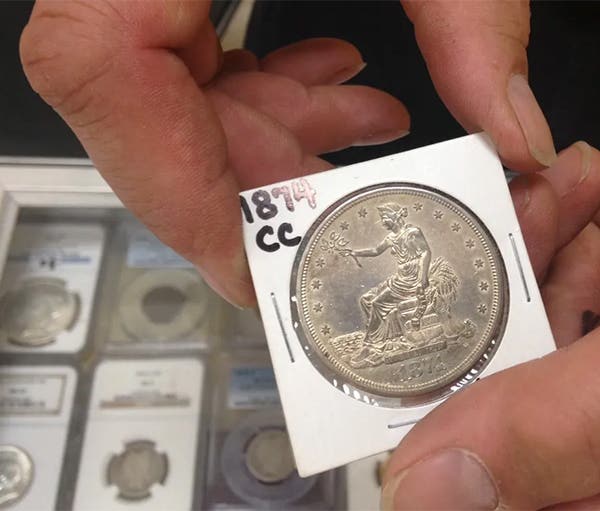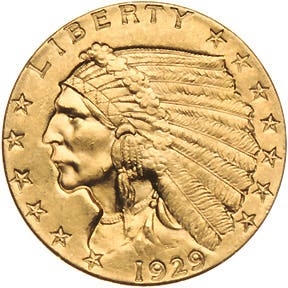Platinum’s Investment Potential
Rarity, jewelry use and auto-industry value may make platinum coins worthwhile investments, but if you collect coins as a hobby, your focus should be on the acquisition of items for your collection and joy of ownership.
Recently, I wrote an article about collecting Platinum Eagles. In it, I briefly touched on platinum’s investment potential because of factors such as rarity, jewelry use, and auto industry value as a component of catalytic converters. This last usage may in the not-too-distant future go the way of buggy whips, as just another relic of the past. In this column, I’ll tell you about a thread in CoinTalk that looked at platinum coins as an investment.
The thread began with a member writing: “With inflation as high as it is right now, I wanted to invest a little bit more in [precious metals]. But with gold at nearly $2,000/oz and silver at nearly $26/oz, I just couldn’t justify buying more at this moment. So, I decided to pick up a couple of ounces of platinum instead. Platinum used to be priced above gold at some points in the past, and so I felt like getting 2oz of platinum for the price of 1 oz of gold could potentially be a good deal. . .. What do you guys think?”
In response, the next poster noted that platinum can really be hard to move when you need to sell. As primarily an industrial commodity, platinum’s price depends on the health of the automobile industry.
The next poster said that his local dealers “. . . are always willing to buy platinum.” He further noted that he thought the dollar would lose more value in the next 5 years than platinum. He ended, “. . . I just feel it’s undervalued.”
A previous poster then noted that platinum’s industrial use was almost exclusively automotive, which is “. . . seeing a push away from internal combustion engines (which raise demand for catalytic converters) and towards greener EVs [Electric Vehicles].” He then concluded, “I just wouldn’t buy platinum to hold as a long-term hedge.”
The original poster (OP) responded, “I consider it more of a speculative investment’ than an inflation hedge.’ . . . I won’t be buying more for a long time. But if platinum goes on a hot streak, I can take advantage of it and convert it to gold or silver at a better price than I paid. My goal is to sell at $1,500/oz whether it’s above gold or not, and I feel $1,500/oz is definitely possible in the next 30-40 years.”
In further defense of his decision to purchase platinum, the OP added: “I don’t think electric vehicles will be the main vehicle for most people for a long time. They are just too expensive right now. Not only that but they have a lot of limitations. They need regular charging, and I think there will always be large swaths of land without any charging available.”
Another poster also liked platinum for its utility. He realized, however, that its usefulness for catalytic converters “. . . is doomed in the long term just as surely as silver in photographic film.”
In response to this post, OP wrote, “But keep in mind that just as demand for platinum for catalytic converters is doomed in the long term, it’s also very likely that new uses for platinum will be found. . .. Who knows what new technology in the future might require platinum, and because platinum is so rare (30 times rarer than gold) even a small demand could cause huge price increases. In my case, the worst thing that can happen is platinum stays low and I keep my coins.”
Another poster agreed that future uses for platinum will be found: “It’s a super-special metal, and even though there are entire chemistry careers devoted to find something that works as well as platinum but is cheaper,’ it’ll always be useful.”
Continuing with his arguments in favor of platinum’s usefulness in the future, OP wrote: “It would be cool if it was used in spacecraft or something like that, kind of like how gold is used in astronaut visors to block the light from the sun.”
In response, another member pointed to the problem of the weight of platinum as a metal with uses in space. “One problem for space applications is that it is so dense, which translates to heavy, which translates to expensive. Launching a kilo of platinum to geosync orbit would cost just about as much as the metal itself. . ..”
To this, the OP replied: “I was thinking if it was used as some sort of shielding or heat protection or something like that. Platinum is notable for having a high melting temperature
. . . . Basically, what I’m trying to say is that if you asked someone in 1922 what applications exist for gold & silver, they would never be able to imagine being used in computer chips or astronaut visors. Platinum might have a future use that is similar where we just can’t imagine the technology yet.”
To this, an astute OP supporter wrote: “Most of platinum’s superpowers are chemical in nature (low bulk reactivity, fancy catalytic properties), and the vacuum of space is pretty much chemical-free. And if we do find lots of compelling space-based uses, we’ll probably want to mine it from asteroids anyhow, where it’s more plentiful (and already lifted out of Earth’s gravity well). Once that becomes big business. . . well, the economy will be a lot larger, and shaped a lot differently. I’d love to live to see it, but don’t expect to.”
To which the OP replied: “That’s my hope! If I was 95 years old, I would never buy platinum because I wouldn’t know if it will go up soon. But I’m about 80 percent confident that I will be able to make a decent profit if I hold it for 30 years. At some point in the next 30 years, I think platinum will be equal to gold even if it’s only briefly.”
At this point, the OP got the platinum eagles he had ordered. “Yay, my American Platinum Eagles (APEs) came today!”
To this, a new poster wrote: “You’re bound to make a nice profit. May take 5 years or more, but the potential is definitely there!”
So, will platinum American Eagles turn out to be a good investment or not? As I wrote near the beginning of my article on them, “. . . platinum American Eagles may be interesting coins to collect.”
Collect is the operative word here. Platinum coins may turn out to be worthwhile investments, but if you consider your coin collecting as a hobby, your focus should be on the acquisition of items for your collection and on the joy of ownership.
Happy collecting!








